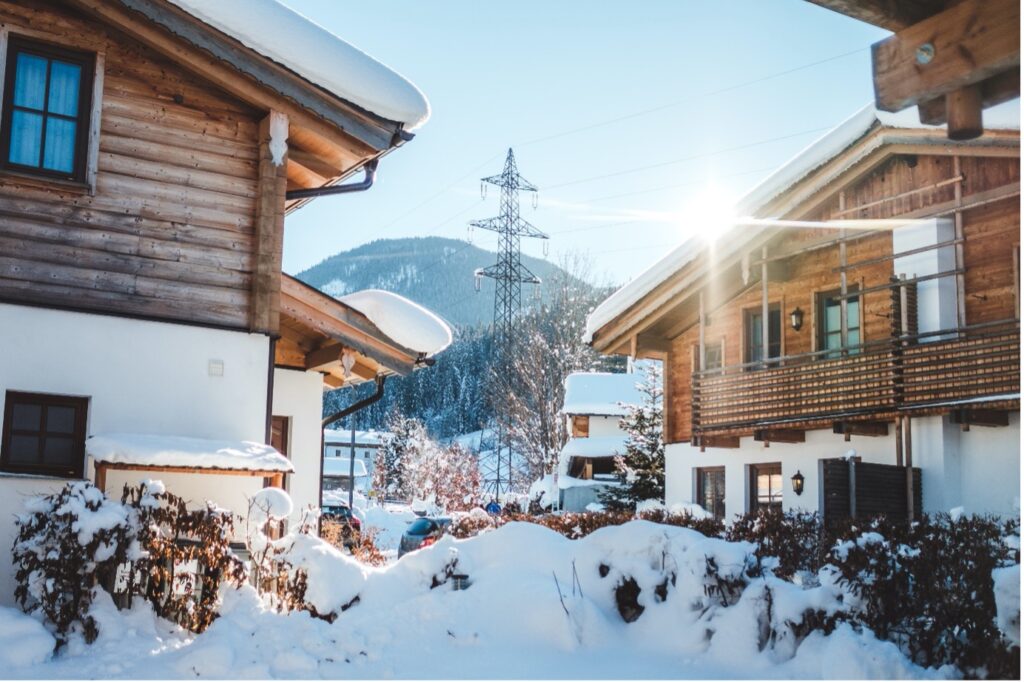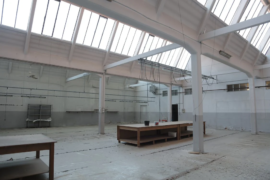
As the winter bells begin to ring, we’re expecting the first snowfall any time soon. Cold-weather climates put extra stress on a home’s structural and mechanical systems. While water is a tough enemy of your house’s structure, it’s tougher in regions where ice forms for weeks or months at a time.
During the extreme winter months (December and January), the northern states, especially Californian cities like Mission Viejo, experience a long, cool, and partly cloudy winter; this means exposed pipes that will likely burst in this sub-freezing temperature and flood the home.
Needless to say, winter brings numerous challenges and can be hard for you and your home. Hence, you must prepare your home for a long, cold spell before it approaches. While you have no control over the weather, you can minimize its effect on your house with certain precautionary measures.
Here are some ways you can protect your home during a cold snap:
Protect Pipes Before Freezing
Water pipes begin freezing as the temperatures start to fall below the freezing point. The varying temperatures of the outer perimeter of the water pipe and the water inside it lead to burst pipes. Before the temperature drops, it’s important to insulate all pipes that are directly exposed to the weather. Insulating your water pipes helps regulate temperature during winter, keeps the water cool during summer, and prevents any leakage due to corrosion.
If the pipe ends are exposed to subzero temperatures for an extended period, they may burst. In some scenarios, the outer shut-off valve or water pipes in the basement or swimming pool experiences a major water leakage, creating an emergency scenario.
If you find yourself in any of these situations, contact a professional plumbing service immediately. One of the best emergency plumbing Mission Viejo CA services is offered by Severson Plumbing company. They have a team of trusted plumbers and repiping specialists available for your individualized needs. With years of experience, they have some of the best experts for plumbing and water heater services, leak detection, and emergency repair or replacement.
Keep the Garage Doors Closed
If a garage accompanies your house, keeping its doors open for a long time can result in cold air rushing inside. Most garages have exposed water pipes that may burst due to cold temperatures. To avoid your garage from freezing, keep its doors closed and stop cold air from entering. You can preserve the heat while protecting your water pipes and joints.
Seal All the Cracks and Holes
During colder times, even the smallest cracks and holes can make way for cold air and pests to take refuge from the freezing weather outside. To avoid cold air and unwanted guests coming in, you must regularly inspect your house’s exterior for any cracks, holes, and displaced frames. Use sealant, silicons, or gels to seal the holes and cracks as soon as you find them. You can immediately fill up these holes by purchasing a can of spray foam insulation. While you must monitor the house’s exterior all year, doing it before winter can help protect your home from extreme temperatures.
Keep an Eye on Attic Ventilation
Attics are one of the coldest areas of the home during winter. Free airflow in your attic prevents warm air from flowing to ice regions. If you neglect attic ventilation, it will result in ice accumulating around the attic, lowering your home’s inner temperature. It will also cause a build-up of ice dams on your roof. To avoid this problem, you must regularly inspect your attic during cold winter spells. Check if there is any insulation that could be blocking your attic vents.
Clean the Gutters Regularly
Gutters filled to the brim choke the water sanitation from the roof, causing seepage and a massive build-up of ice on the roof while creating a strong odor. Before winter arrives, it’s best to clear the external drainage systems and clean the drains on the rooftop and around the house. This will prevent ice buildup or water overflow during a storm.
Install Insulation in Walls
The majority of older houses lack adequate insulation. If your house has little or no insulation, your pipes can freeze during winter, or your house will stay cold. To protect your home from extreme temperatures, adding insulation to walls, attics, floors, and even rooftops is important. Proper insulation will help regulate the temperature in all seasons, lower your utility bills, and increase your property’s life.
Get a Chimney Sweep
If you have a fireplace and chimney at home, it’s important to get it inspected and cleaned before winter arrives. If you use wood in the fireplace, the fire and carbon elements stick to the water droplets inside the chimney liner and develop a layer of a sticky dark substance called creosote. A large amount of creosote not only causes chimney fires but also blocks the exhaust, causing an accumulation of dangerous carbon monoxide inside the house. Get your chimney cleaned and inspected to clear any debris, creosote buildup, and any blockage in the flue.
Locate Water Shut Off Valve
If a plumbing issue pops out of nowhere during winter, the first thing to do is to disconnect your home’s water supply immediately. For this reason, it’s important to locate the water shut-off valve and remove any obstruction blocking access. Make the main water shut-off valve easily accessible during an emergency. In most cases, a professional plumber maintains the main shut-off valve, but closing a shut-off valve immediately can prevent further damage.
Install a Backup Generator
Your furnace and water heater can’t function if there is no power. Consider installing a dual-fuel generator that can run on natural gas and liquid propane (or gasoline) to power your home automatically. A generator has many benefits and can keep the thermostats working, save you a lot of energy, and reduce bills.
Install Seals and Draughts
Windows and doors have small slits around the frame, which causes cold air to rush into the house. This is why even insulating your house and keeping the furnace on all day doesn’t help. You may also be losing heat around your windows and doors. However, you can easily fix this problem by waterproofing or sealing windows and draught-proofing the doors. You can also cover the glass at night and place the fabric under the door to reduce heat loss.
Regulate Your Thermostat
Regulating your home temperature also helps you protect your home during extreme temperatures. Constantly burning furnaces damage the expensive heating system, and the hot water running through the pipes may cause a burst due to extremely variable temperatures outside.
To make sure your heating system runs seamlessly during the entire winter season, we recommend you keep the temperature around 68°F during the daytime. Lower it when you’re asleep or away from home. If your thermostat is lowered by 8-10°F for 8 hours daily, you can save 10% on your annual heating costs.
You should also have spare batteries on hand to keep the smart thermostat functioning. Smart thermostats can alert you of low temperatures and prevent pipe bursts.
Final Thoughts
The long, cold days of winter can damage your home’s structure. Keeping your home safe from extreme temperatures and maintaining indoor heat levels necessitates regular monitoring, cleaning, and extra precautions. To reduce heat loss, insulate your pipes, walls, flows, and attics. Seal windows and doors to keep cold air out, and set your thermostat to avoid overheating. With these precautions and extra care, you can protect your home from the damaging effects of extreme temperatures and enjoy your holidays stress-free.
Paid Guest Post











